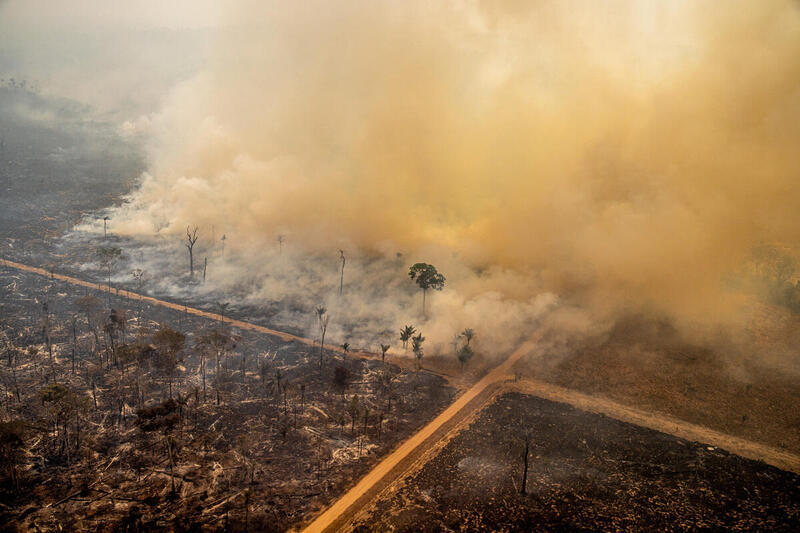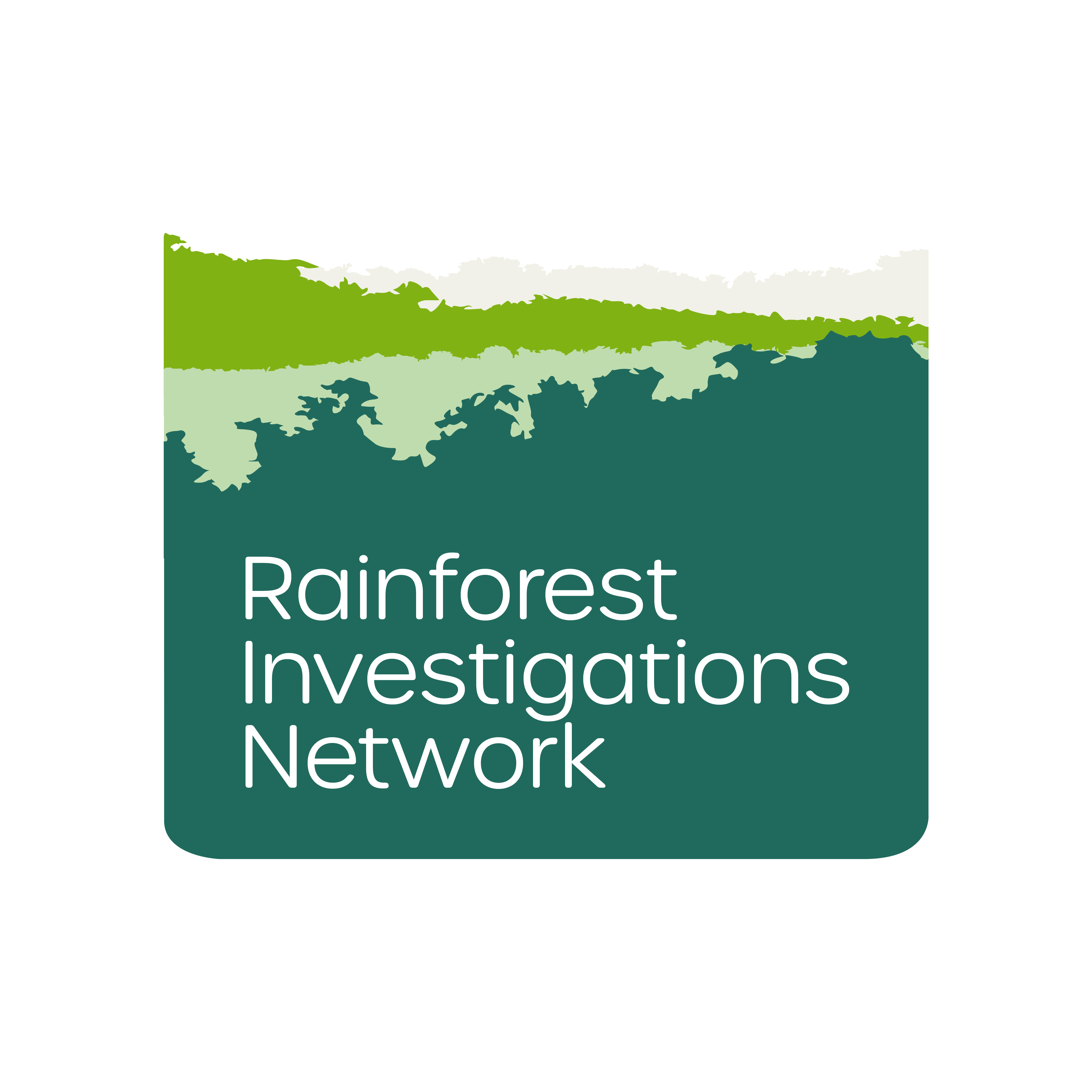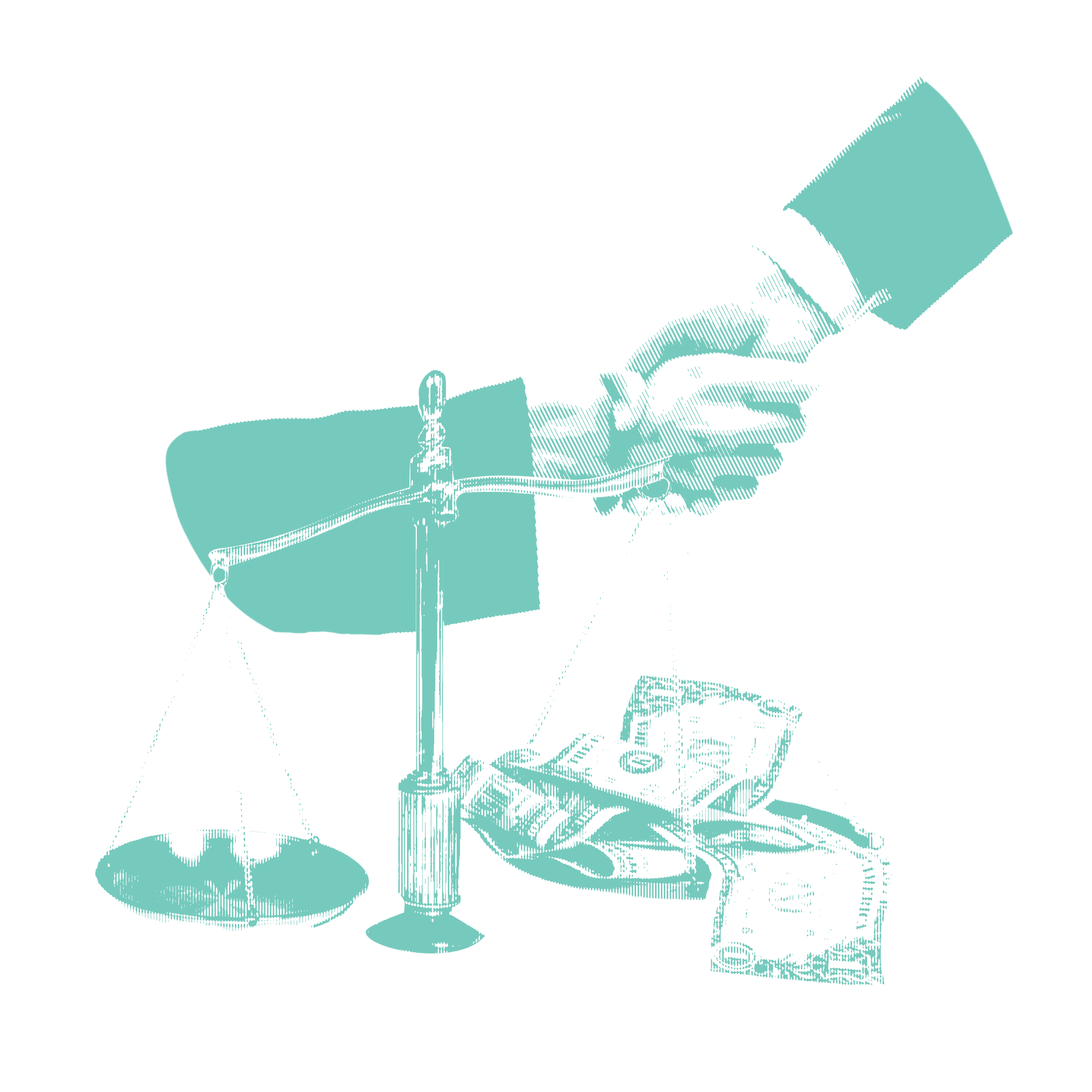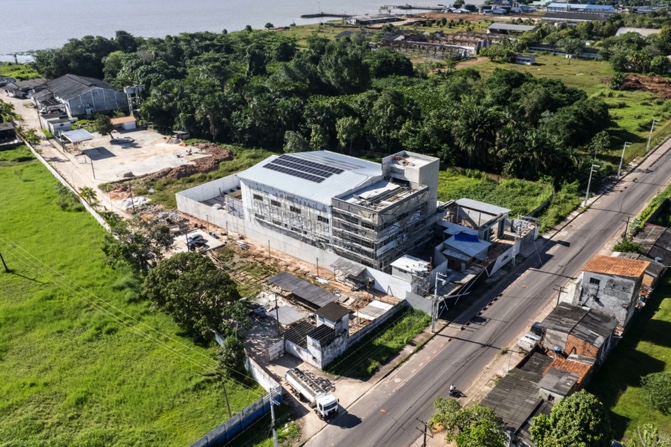
BRAZIL’S LARGEST GOLD refinery will soon be operational — right in the middle of the Amazon. The government of Pará, a northern state of Brazil that contains a vast portion of the Amazon, has trumpeted the refinery as a strategic move to bolster a local economy that has been decimated by deforestation and illegal mining. In their announcements surrounding the project, however, Brazilian authorities have concealed the identity of the key investor behind the North Star refinery: Belgian tycoon Sylvain Goetz, whose family’s empire of precious minerals has been ridden with scandal.
Goetz has a nearly 25 percent share in North Star, according to government documents obtained by The Intercept. The other project investors listed in the documents, including a Bahamas-based company with a majority share, have been linked in media accounts to Tony Goetz NV, the former Goetz family company.

Whistleblowers and others in possession of sensitive information of public concern can now securely and confidentially share tips, documents, and data with the Pulitzer Center’s Rainforest Investigations Network (RIN), its editors, and journalists.
In 2020, Sylvain Goetz and his brother Alain were convicted in Belgium of money laundering and fraud for creating an underground black market for gold. A 2018 report by the U.S.-based investigative nonprofit The Sentry implicated Tony Goetz NV in illegal mining operations in the Democratic Republic of Congo — a revelation that later drew scrutiny from U.S. lawmakers and regulatory agencies. According to the investigation, Goetz family businesses illegally smuggled the gold to a refinery in Uganda, from which the gold entered the supply chains of major global companies. The company denied the accuracy of the report and has not faced any charges in relation to its business in Uganda. The company also denied wrongdoing in the case that resulted in a conviction in Belgium.
In a statement to The Intercept, Goetz’s lawyer, Bert Luyten, said that his client “made a personal investment” in the refinery, and that he is merely a stockholder and not conducting business on behalf of the enterprise. “He never visited the construction project and never met the governor, who is a complete stranger to him.” Luyten also said that Tony Goetz NV has been nearly nonoperational since 2020. The company rebranded to Industrial Refining Company that same year, and Sylvain Goetz is the chair and sole board member of that entity.
The North Star refinery, which is in its final phase of construction, will eventually refine half of total national gold output: 24 tons of gold per year to begin, and as many as 48 tons per year when it attains full capacity. According to the government of Pará, the North Star refinery will feed the jewelry hub of Belém. But given the volume of production, all indicators suggest that the purified gold will be purchased by a slew of multinational companies, the heart of Goetz’s historical businesses.
In the last two years, hundreds of U.S. companies reported to the U.S. Securities and Exchange Commission that gold refined by Tony Goetz may have ended up in their products. The companies include Tesla, Amazon, Dell, Johnson & Johnson, HP, and Starbucks.
Asked about the allegations surrounding Tony Goetz, in light of their filings with the SEC, Amazon and Starbucks declined to comment, while Tesla, Johnson & Johnson, and HP did not respond. A Dell spokesperson said the company was working to transition its suppliers away from the Goetz family business.
“Dell classifies Industrial Refining Company (previously Tony Goetz NV) as a high-risk refiner, and we have communicated to our suppliers they are required to transition away from this refiner if reported in our supply chain,” spokesperson Jim Hahn wrote in an email. “We are in the process of completing our annual assurance process to ensure our expectations are met.”
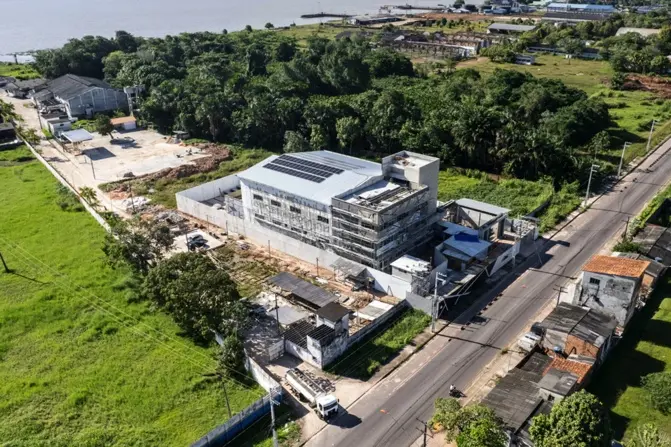
Pará, the state in which the refinery is being built, has its own checkered history with mining. About 58 percent of the 17.7 tons of gold extracted from small-scale mining in Pará between 2019 and 2020 was likely illegally procured, according to a study led by researchers at the Federal University of Minas Gerais. The researchers found that companies had reported purchasing gold that had been mined in areas with no evidence of mining activity — an indication that they were laundering gold extracted from illegal mines.
Larissa Rodrigues, from Instituto Escolhas, a nonprofit organization that researches the gold supply chain in Brazil, said that a big gold refinery located within Pará will boost small-scale mining in the Amazon, an economy over which there is little official oversight and is highly vulnerable to the type of fraud identified by the UFMG study.
“Pará is the state that has the largest illegal mining production in the country. So, in theory, it makes perfect sense that they want to build a big refinery there,” Rodrigues said. She noted that the majority of Pará’s gold supply comes from small-scale mining. While big companies will likely be able to benefit from legal mining, she said, “I have no doubt that the bulk will be for gold from illegal mining.”
On Monday, President Jair Bolsonaro, a far-right politician who encourages mining on Indigenous lands, signed two decrees creating a program to support small-scale mining and to reduce the time frame for reviewing mining applications.
Golden Laundromat
Tony Goetz NV, the group of businesses involved in the refining of precious metals, was founded in 1984 by the family patriarch Tony, a wealthy diamond merchant. He brought his children into the family business, with Sylvain, Sylvain’s younger brother Alain, and Alain’s wife Sandra Weyler sitting on the board of directors of Tony Goetz NV up until October 2018. By 2019, Sylvain Goetz was the sole board member for the company.
The company, directly and through members of the Goetz family, once maintained a large international footprint, including in Uganda. Between 2014 and 2018, members of the family held equity interests, directly or indirectly, in the Ugandan African Gold Refinery, or AGR. Tony Goetz NV was the refinery’s majority shareholder in its first year of function, according to the 2018 “Golden Laundromat” report by The Sentry. Later on, Alain Goetz became the only member of the family directly involved with the refinery, though AGR continued to make direct sales to other companies in the network of family businesses, according to The Sentry’s report. Luyten, Sylvain Goetz’s lawyer, said that his client and Tony Goetz NV “do not have or never had activities in Uganda.” Luyten added that The Sentry’s report has no “factual nor legal basis.”
The Sentry found that the majority of AGR’s gold came from illegal mining operations located in areas of armed conflict in the Democratic Republic of the Congo. According to the investigation, Alain Goetz used 15 businesses that he managed with Sylvain in countries like Belgium, Uganda, Luxembourg, and the United Arab Emirates in order to hide the origins of AGR’s refined gold. Citing interviews with miners and merchants, the report concluded that the Goetz family business financed armed groups in the DRC. (The process of refining gold involves smelting it in order to reach 99.99 percent purity, so that it can become a financialized asset. While it is still “dirty,” gold features other metals in its composition, which aid experts in identifying the gold’s origin, including whether it came from an illegal mine.)
The investigation also raised serious questions about the gold’s entry into the global supply chain. In 2017, AGR exported nearly $377 million in gold to a Dubai-based company called Goetz Gold, which appears to be a business associate of Tony Goetz NV. The next year, filings with the SEC showed Tony Goetz NV as a supplier of gold to 283 publicly traded companies in the United States. The same filings showed that gold from the AGR refinery possibly ended up in the supply chains of 103 U.S businesses, including General Electric and the oil sector business Halliburton.
The pipeline from Goetz family businesses on the African continent to major U.S. companies sparked a warning from the Senate. Last April, Democratic Sens. Cory Booker, Ben Cardin, and Dick Durbin sent a letter to U.S. Treasury Secretary Janet Yellen requesting sanctions against the network of refineries linked to Alain Goetz, referred to as “the most influential network in the trade of conflict gold.” In June, Yellen wrote back that her department could not comment on “possible or pending investigations” but that the Treasury was reviewing reports, including by The Sentry, on the illicit trade in conflict gold.
In Belgium, the Goetz brothers were convicted in January 2020 for moving more than 1 billion euros, or $1.1 billion, with spot purchases in 2010 and 2011. According to the court’s decision, Alain and Sylvain Goetz created a fraudulent scheme to circumvent tax law and hide the origin of the gold they traded. The brothers had set up a system for customers to sell gold anonymously to a Tony Goetz NV refinery in Belgium for cash, and the company ended up with around 9.2 million euros ($10.5 million) in illegal capital gains, the court found. The court confiscated 3.2 million euros ($3.6 million) from the brothers’ company. At the time of sentencing, the company said that Alain Goetz was no longer involved with the family business; six months later, the company changed its name to Industrial Refining Company.
Luyten, Sylvain Goetz’s lawyer, noted that the conviction related to events that transpired more than a decade ago, and that the company has not made cash payments since 2011. The lawyer added that “Tony Goetz NV has not been indicted” for any other crime and has been “audited regularly by Belgian authorities.”
Belgian officials, however, continue to scrutinize the Goetz family’s businesses. Last year, on September 28, Belgium’s minister of foreign affairs, Sophie Wilmès, told members of the Belgian parliament that her administration submitted a formal complaint against Alain Goetz to the Belgian court in February 2019, but would not publicly specify the nature of the investigation. She also stated that the country’s Federal Public Ministry opened “several cases, still in progress and covered by judicial secrecy.”
Secrecy in Brazil
In Brazil, the most that authorities will reveal about the owners of the new refinery is that North Star is a “Brazilian company with Belgian capital, specialized in the field of precious minerals.” Over several months last year, the Pará government did not respond to multiple requests from The Intercept and from the Belgian magazine Knack, our reporting partner, to elaborate on the references to “Belgian capital” in its press releases about the project.
The documents obtained by The Intercept from the Pará Board of Trade, which oversees activity related to business partnerships in the state, however, offer some detail into North Star’s financial backing. North Star’s balance sheet shows that Sylvain Goetz made an investment of 4.6 million reais, or about $880,000, to obtain a 24.78 percent stake in the refinery.
A Bahamas-based group called the North Coast Commodity Advisory & Investment Company LLC also invested in the project, holding 69.63 percent of shares; additionally, Maison Prime Holdings LTDA, from Dubai, holds 14.06 percent of shares. The Brazilian company Omex Comércio e Exportação de Metais Preciosos S/A was the only investor in the project until August 2021 but now holds only 0.54 percent of shares. The government of Pará estimates that the refinery will ultimately yield a profit of 7.2 billion reais, or $1.4 billion, annually.
The Intercept’s investigation shows that, beyond his 25 percent investment, Sylvain Goetz is linked to all three other investors through his family business.
Serge Keyser, a representative of the Dubai-based company Maison Prime, worked at the AGR refinery, a Goetz enterprise, from 2014 to 2017. Keyser declined to comment for this report.
North Coast, which is based in the tax-friendly Bahamas and holds the majority of shares in the North Star refinery, is represented by the Suriname entrepreneur Conrad Issa. In 2018, Issa gave an interview where he is identified as a representative of Tony Goetz NV. In an email to The Intercept, Issa said that he is only a private investor in North Star and that he never acted as a representative of Tony Goetz NV. Asked about the references to him as a representative of the Belgian group in news reports and Pará government statements, Issa said that “this was clearly a translation error.”
Omex Comércio e Exportação, the Brazilian investor, is owned by Roselito Soares da Silva, the former mayor of Itaituba, a city located in the state of Pará. When the refinery project first launched in 2018, an official press release referred to the former mayor as a representative of Omex and a partner of Tony Goetz NV.
In May 2019, da Silva registered a new company called Maison Prime. Da Silva’s company has a different registration number than the Maison Prime that is invested in North Star, but the two companies share the same commercial address in a chic Dubai building.
The former mayor is also linked to Distribuidora de Valores Mobiliários Ourominas, or DTVM Ourominas, a company founded by his brother. Roselito Soares has spoken publicly on behalf of DTVM in the past, with several news articles referring to him as a director, as recently as 2017. Several DTVM business partners have been investigated by the federal police for fraud and the purchase of illegal gold. (Federal prosecutors brought charges against them in 2019, and the case is ongoing.) Last year, DTVM was named in the Federal University of Minas Gerais study as one of three principal financial institutions that dump illegal gold into the domestic Brazilian market. The study revealed that the company purchased more than a ton of illegal gold in the southwest of Pará, which led to an ongoing lawsuit by the federal prosecutor’s office against the company. A spokesperson for the company said they had not been notified about the lawsuit and that Roselito Soares has “no representation or equity interest in the company.”
The current president of North Star is Mauricio Gaioti da Silva, who worked at DTVM Ourominas until 2017 and is a co-owner with the former mayor in a gold trading company. Luyten, the Goetz lawyer, directed questions about the Brazilian company to Mauricio Gaioti. By email, Mauricio Gaioti said that Sylvain Goetz “is a shareholder and not [involved in] operations.”

Environmental Damage
The state of Pará produced 30.4 tons of gold in 2019 and 2020. More than half this amount has hints of illegal origins, coming from areas with intact forests with no sanctioned mining projects, according to the UFMG study, which has been cited by the Public Ministry. Federal prosecutors indicated that the gold produced in Pará may be linked to illegal mining in Indigenous territories. “Illegal miners are responsible for the massive, widespread, and systematic violation of the most fundamental rights of the Indigenous people,” the prosecutors said.
When it comes to North Star, the government of Pará is again planning to work with companies with a controversial history.
Last February, the governor of Pará, Helder Barbalho, signed an agreement with five mining companies for them to supply gold to the North Star refinery. The companies are Serabi Mineração S/A, Brazauro Recursos Minerais S/A (which formerly sold its operation to the Canadian G Mining Ventures), BRI Mineração LTDA., Gana Gold Mineração S/A, and Belo Sun Mineração LTDA.
Gana Gold was sanctioned by Ibama, a federal environmental agency that supports efforts against deforestation, and the Chico Mendes Institute for Biodiversity Conservation, another arm of the Ministry of Environment known as ICMBio, after The Intercept Brasil published a report last September revealing that the company had already extracted more than 1 billion reais (about $200 million) in gold from a federal conservation unit without having an environmental license.
Canadian company Belo Sun was found last year to have violated Brazilian mining laws. According to reporting in the newspaper O Estado de S. Paulo, Belo Sun sought to extract gold from a region inhabited by farmers and riverside dwellers who have been threatened with expulsion by the company for almost a decade.
Illegal mining in Pará affects the health of Indigenous communities, with mercury contamination appearing in the rivers and fish of the Amazon. In a study conducted by the Oswaldo Cruz Foundation, a Brazil-based research institution also known as Fiocruz, in partnership with the nongovernmental organization WWF Brasil, blood samples of members of the Munduruku tribe, who live in the southwest of Pará, show that almost 60 percent had a mercury content that was higher than what was acceptable.
When the study was published, Fiocruz researcher Paulo Basta warned of the impacts of small-scale mining on the health of Indigenous people of the Amazon. “The results show that the mining activity has been promoting large-scale changes in land use in the traditional territories of the Amazon, with direct and indirect socio-environmental impacts on local populations, including damage to food security, the local economy, people’s health and to ecosystem services,” said Basta.


